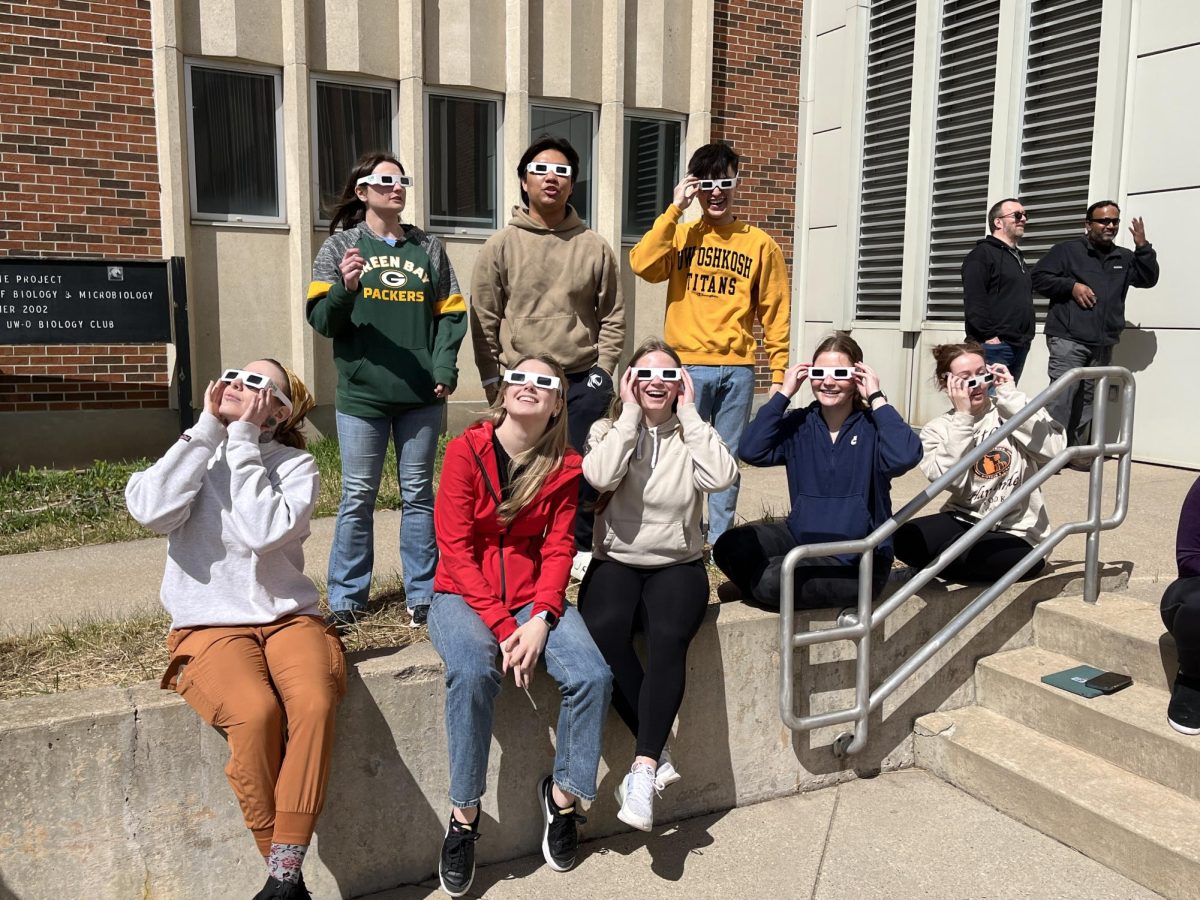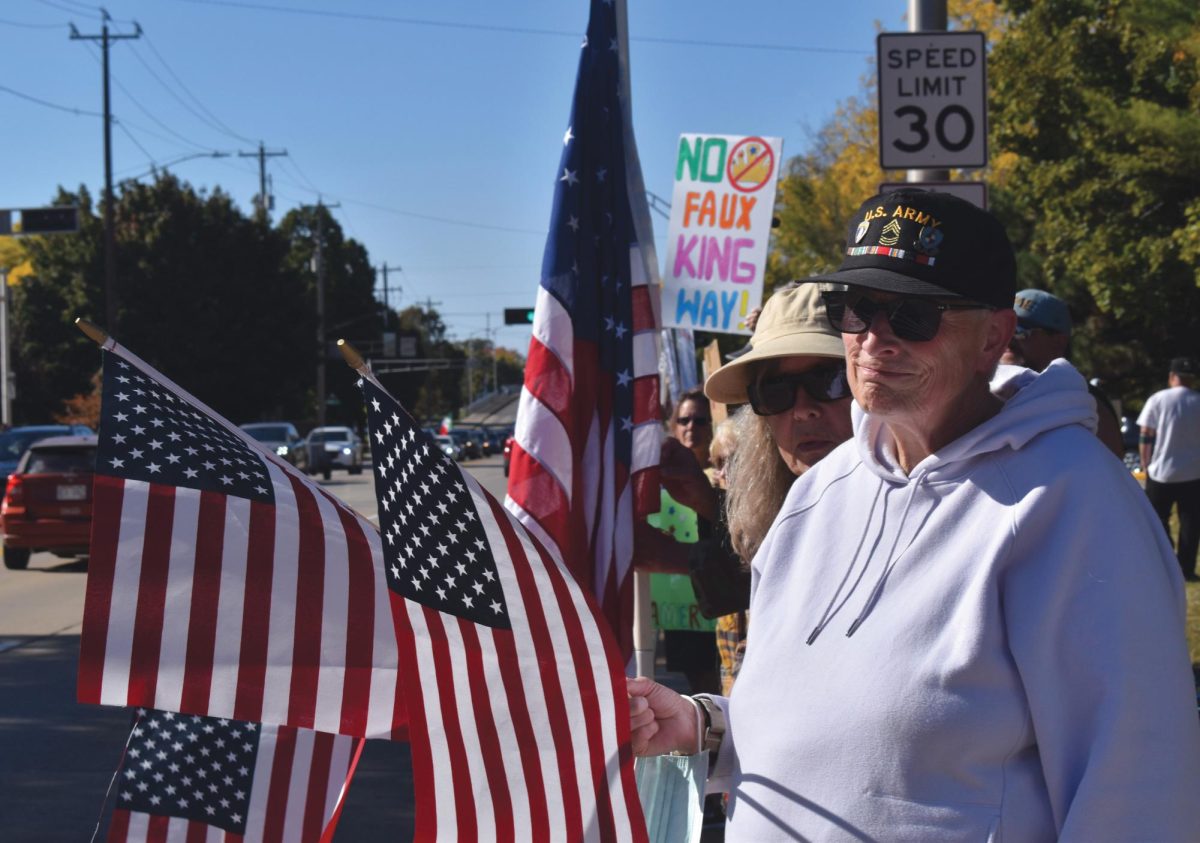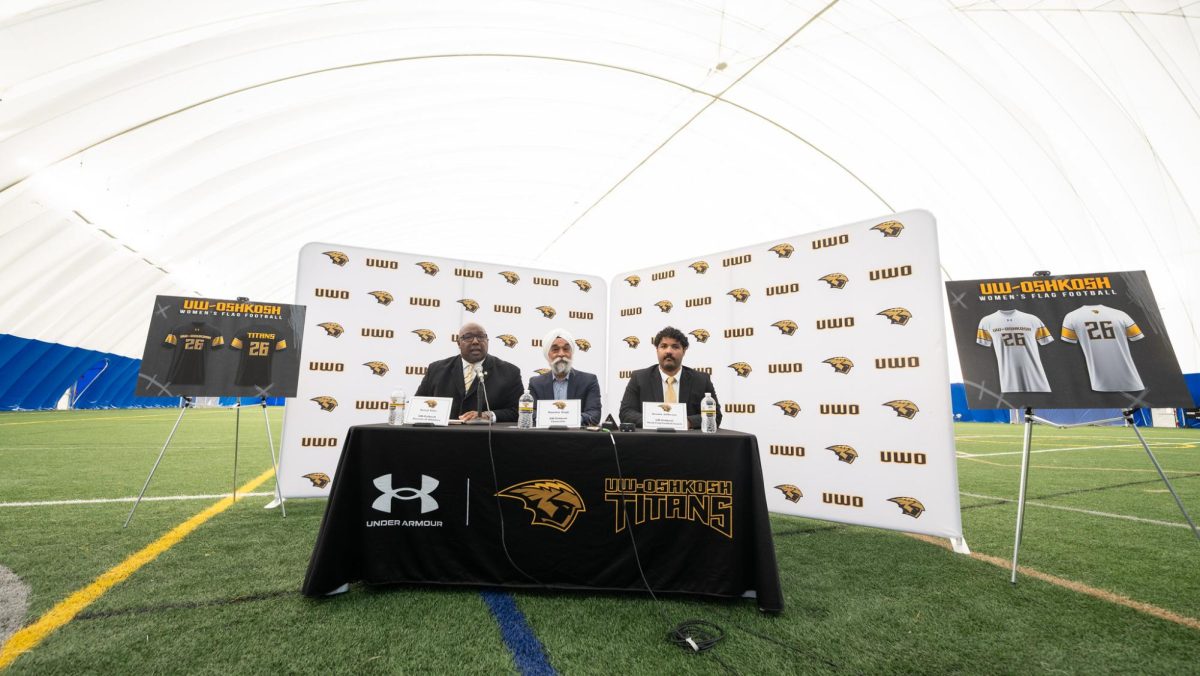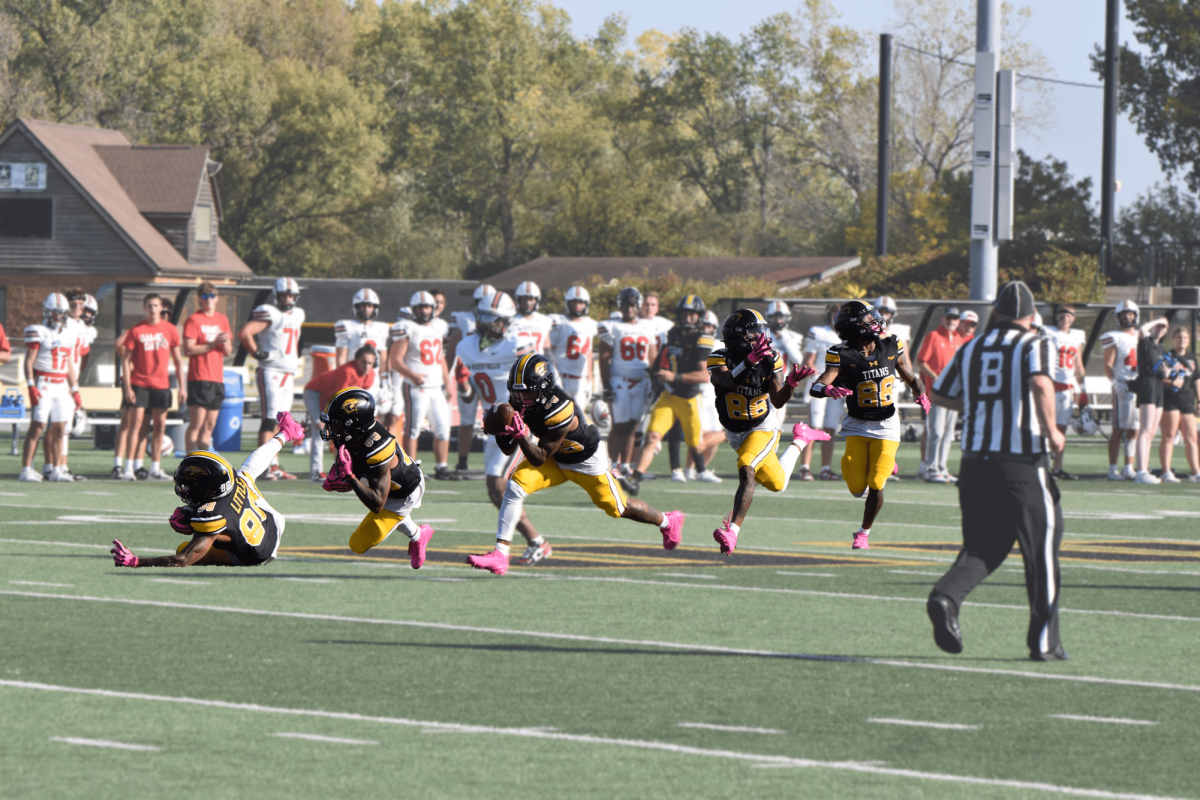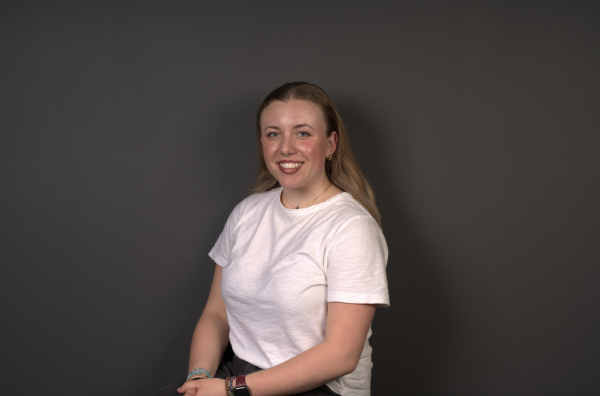A total solar eclipse crossed North America with parts of 15 states within the path of totality. This was the first eclipse fully visible in the US since 2017, when 14 states from Oregon to South Carolina were in the path of totality.
In Oshkosh, the event hit its maximum at 2:08 p.m. when about 85% of the sun was covered. The Department of Physics and Astronomy held a viewing event in the yard outside of the Hasley Science Center.
Students in the department were outside handing out glasses to those who wanted to see the eclipse in action. Some professors from other departments even told their students to skip class until the event was over at 2:30.
Nicole Ramsdell, Miriam Shofner, Kate Steckbauer and Joanna Salmela were supposed to be in their analytical chemistry lab, but their professor Dr. Yijun Tang told them to come back when the event was over.
“I’m glad that Dr. Tang gave us time to actually come out and see it because we were just going to be inside,” Ramsdell said.
The students appreciated the time to enjoy the nice weather and witness an eclipse in an area with nearly full totality.
“It’s also cool to see how many people are actually out here watching it and how many other professors let students out too,” Steckbauer said.
Associate professor Barton Pritzl, with the help of four students, helped facilitate the viewing event on campus. Pritzl said this event looked different than the one in 2017.
“The length of the totality of the eclipse was nearly double of that that went through the US in 2017,” Pritzl said. “The 2024 eclipse was also a wider path for the totality and also went through a higher number of populated areas.”
Pritzl traveled to Toledo, Ohio to view the eclipse in totality. Pritzl, having grown up on a small farm, fell in love with space and the night sky.
“I fell in love with astronomy when I was little,” Pritzl said. “I grew up on a small farm and had great views on the night sky. I was always fascinated by it, how it worked and was put together.”
He said the students in the department want to have a greater understanding of nature and how it works – they’re problem solvers.
“They love to solve problems,” Pritzl said. “This is why we tend to see our majors and minors go into a variety of fields once they graduate due to their high-level critical thinking and problem-solving skills.”
As with most astronomy events, conspiracy theories began to crop up across the internet. Some said it was a sign of god coming to earth, others thought it was a globalist push of dark energy coming to Earth.
“There is no reason to worry about such things,” Pritzl said. “It is easy to get caught up in such thoughts as it is such a unique event, but science explains what is happening in an event like this. There is no reason to be concerned about anything supernatural happening with the eclipse. For events like this, I would simply recommend a person to go out and enjoy the beauty of creation!”
Pritzl said astronomy is something everyone can be involved in because all you have to do is look up and observe.
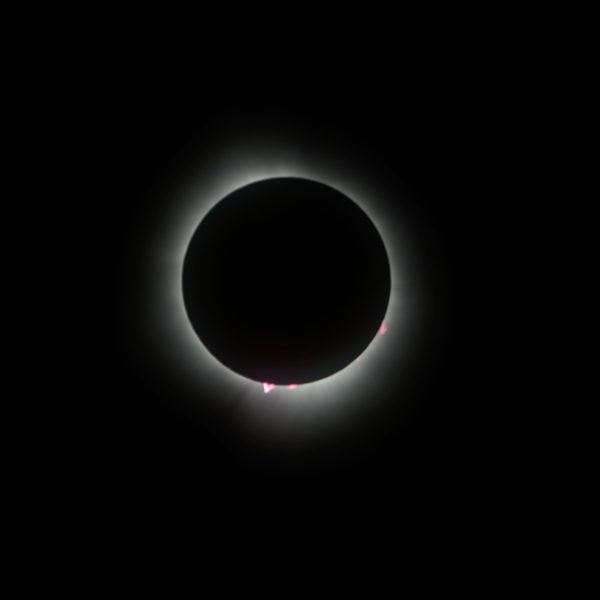
“It goes beyond the amazing events, such as a total solar eclipse, and into our daily lives such as the changes with the seasons,” Pritzl said.
The department didn’t anticipate the turnout to the viewing event and ended up running out of solar glasses.
Alex Pedretti, a freshman majoring in physics and minoring in astronomy, was one of the student volunteers handing out glasses. He said they estimated about 250-300 people in attendance.
“My colleagues and I were all very surprised at the crowd turnout,” Pedretti said.
Pedretti said it was great to see so many students having conversations about astronomy and asking questions about the eclipse.
“It made for a very enjoyable experience and was very exciting to see how many people took interest,” Pedretti said. “I, being invested in topics revolving around space and astronomy, was eager to help out and get more involved with the physics department.”
It was his first time viewing an eclipse from start to finish.
“Truly a great moment to witness in person,” Pedretti said.
The success of the event was astronomical and totally eclipsed Pritzl’s expectations.
“Thank you to the physics and astronomy students who ran the event,” Pritzl said. “ And thanks to everyone who came! The turnout was much higher than we had anticipated, but we hope that it was a great experience for everyone.”


